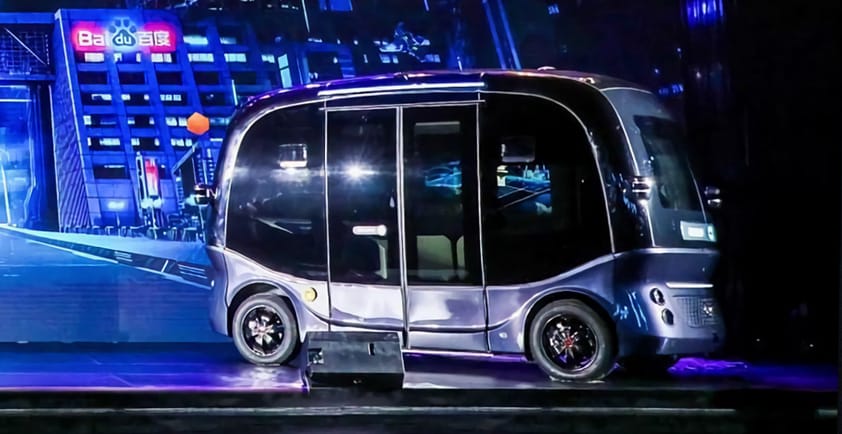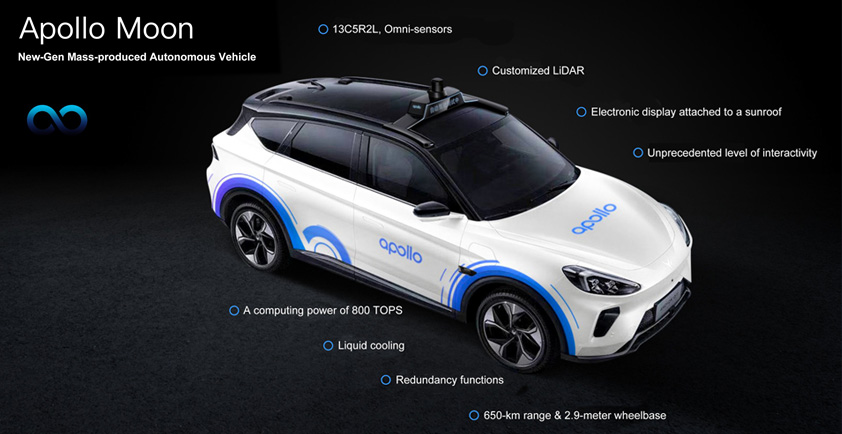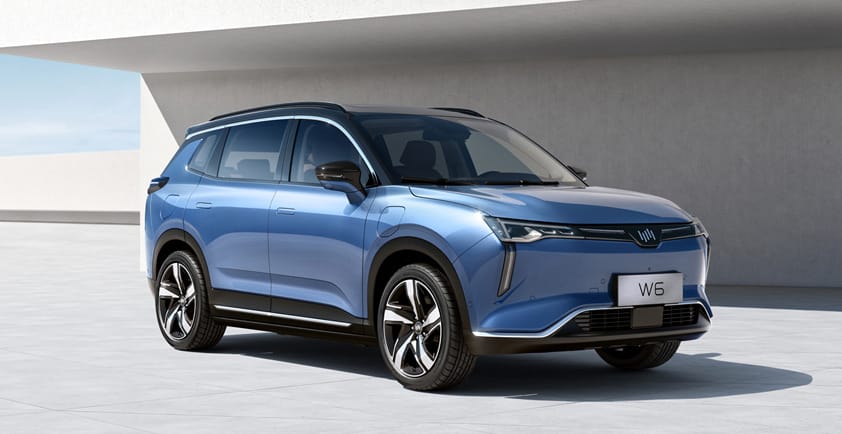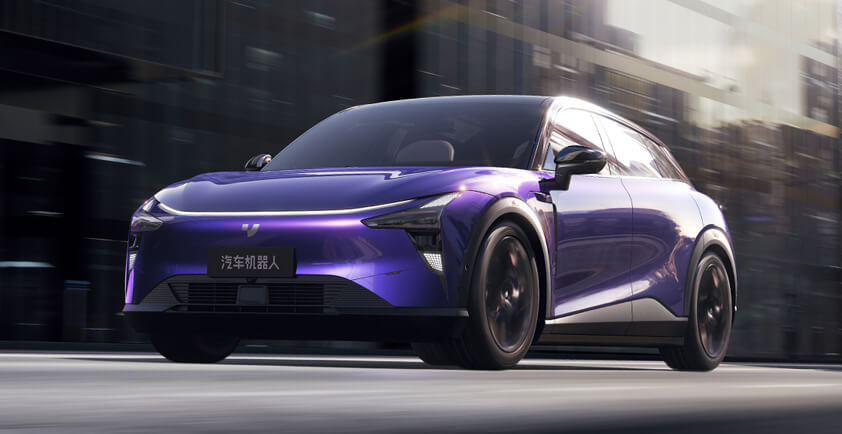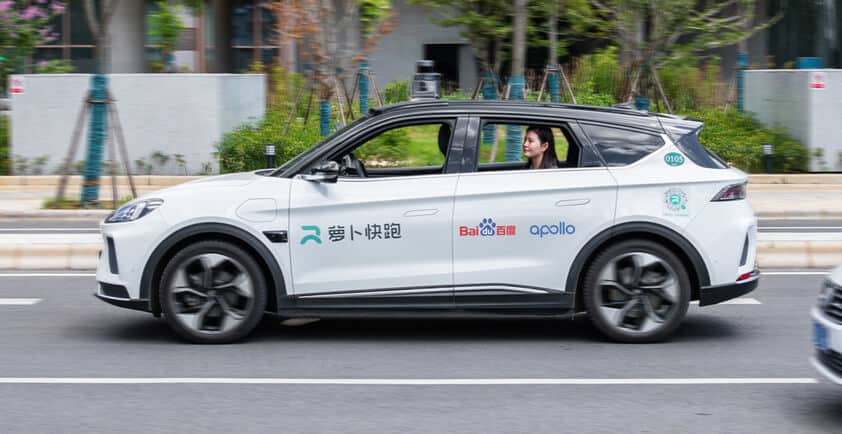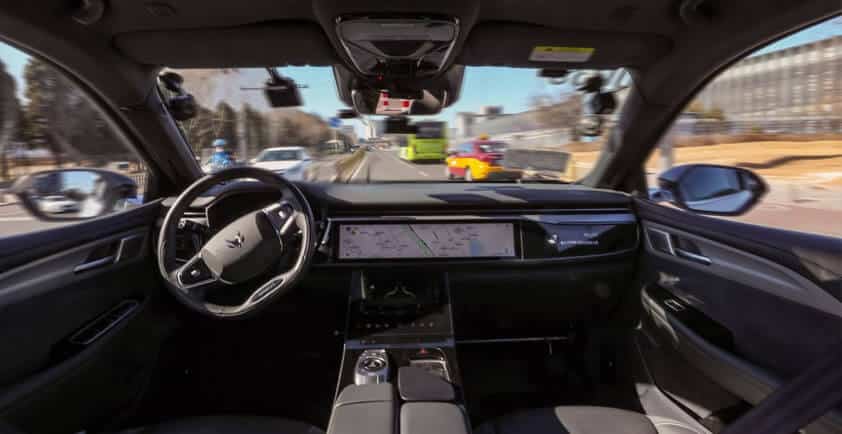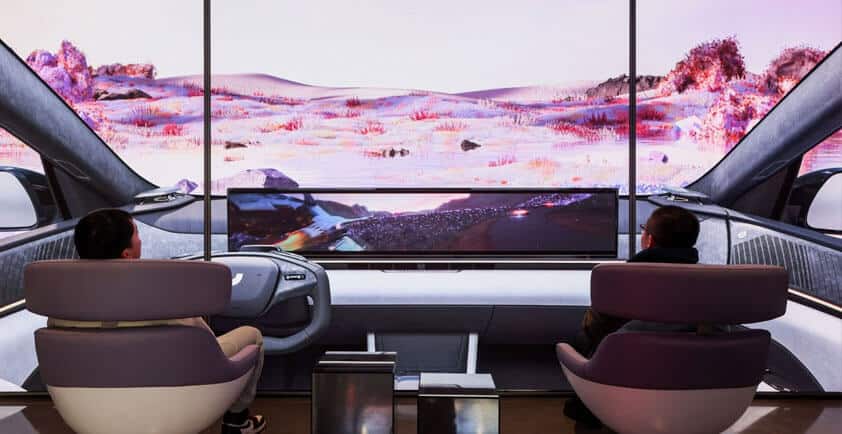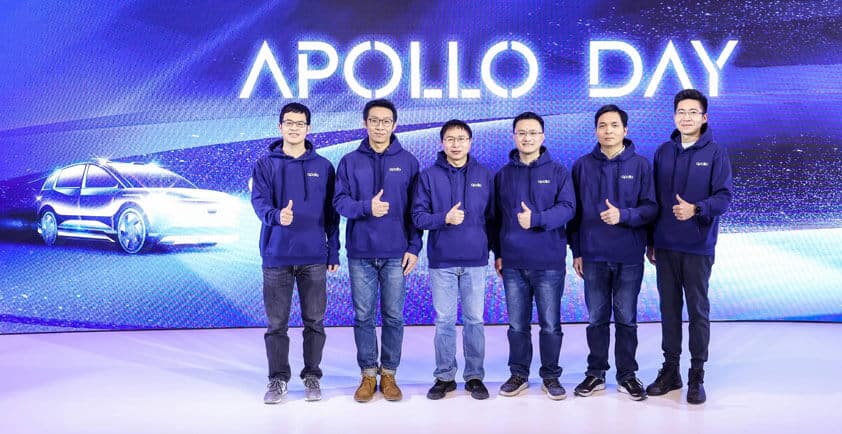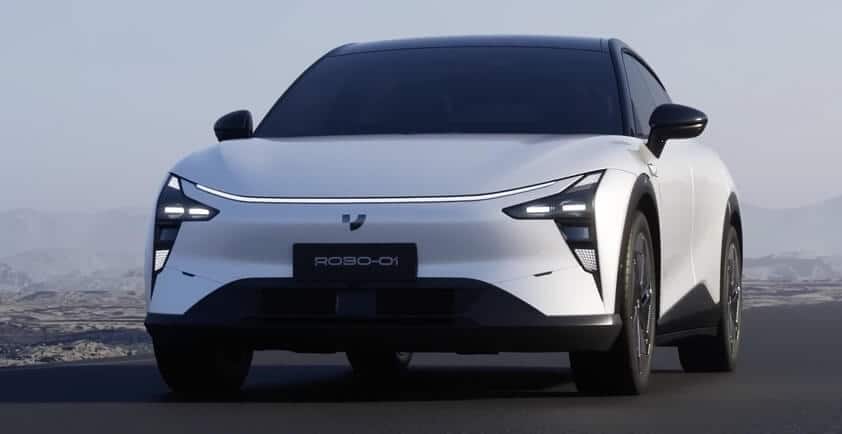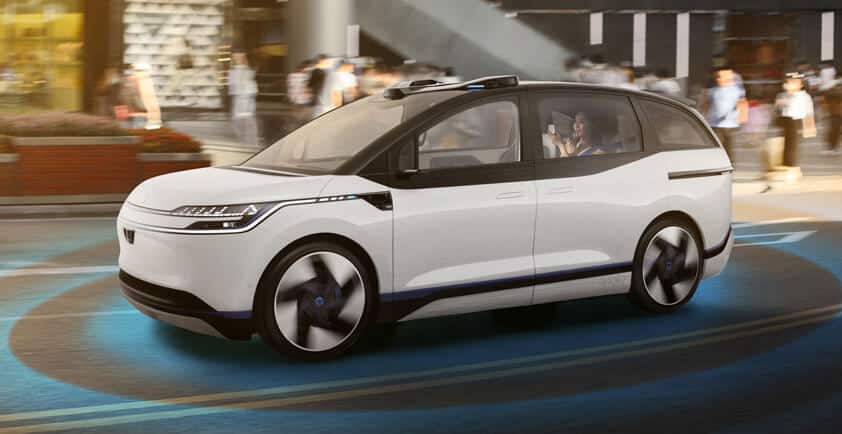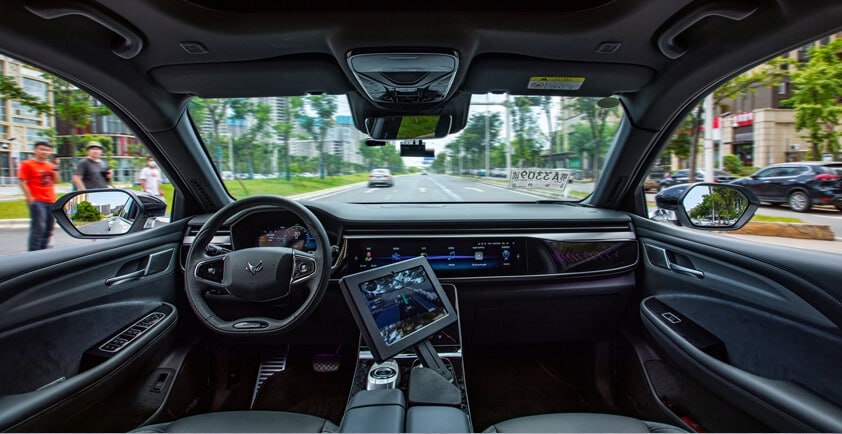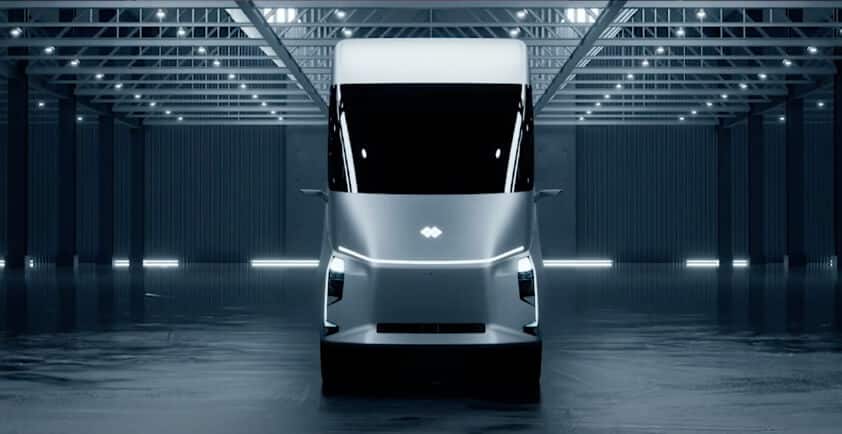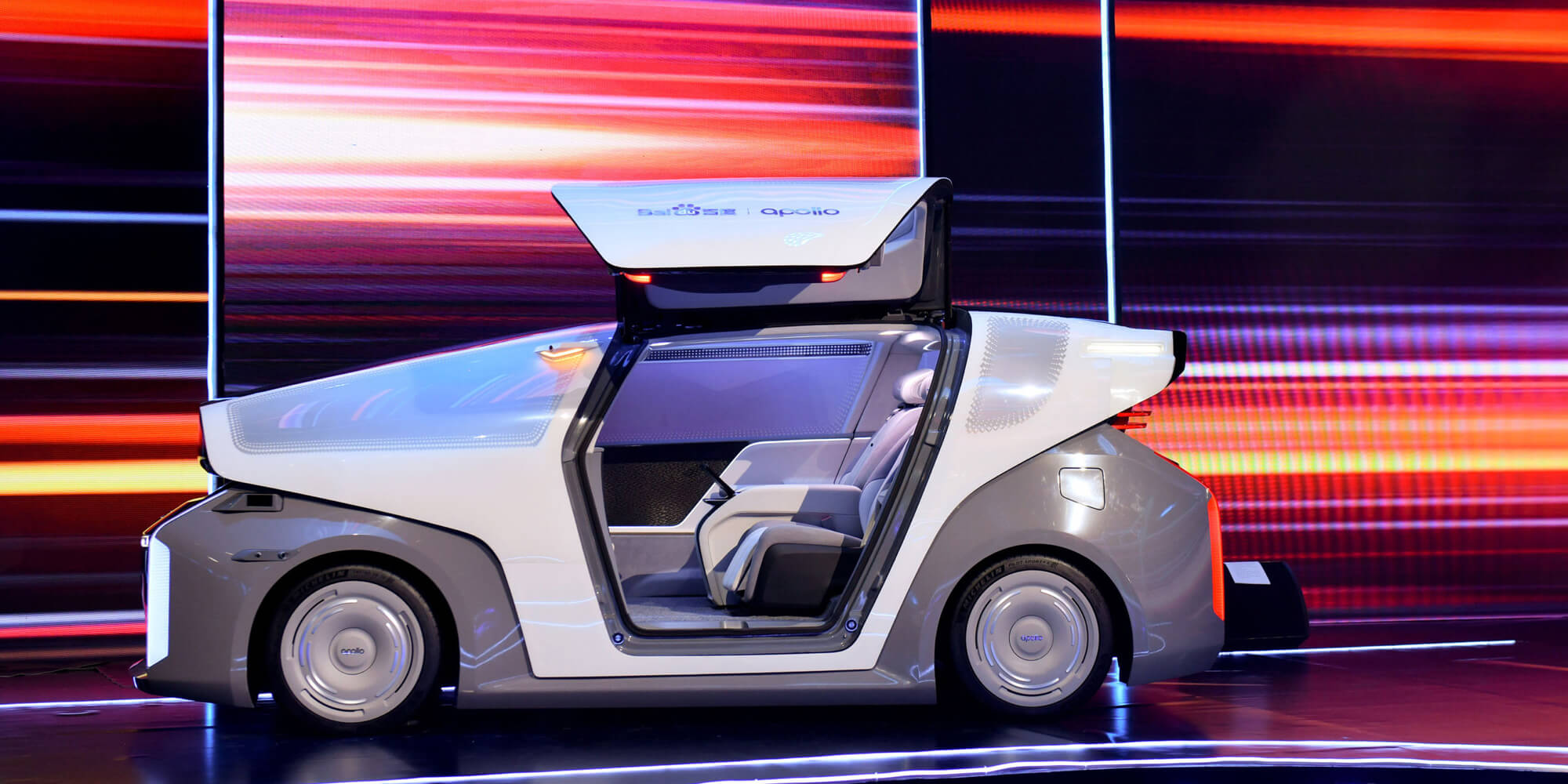
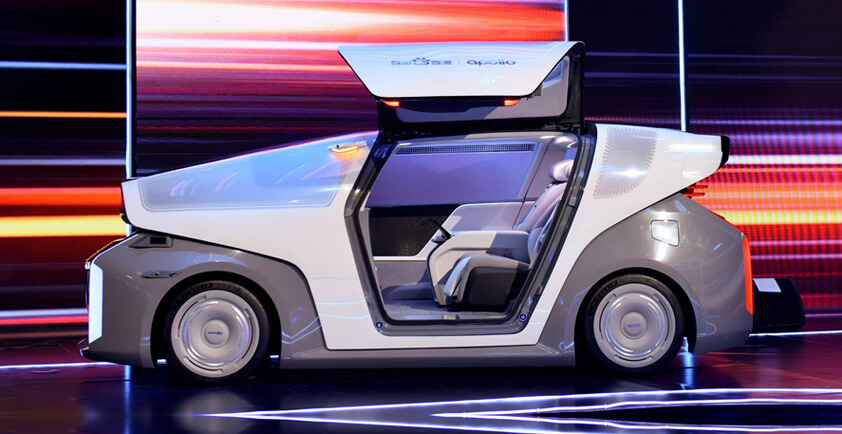
BAIDU ANNOUNCES AUTONOMOUS DRIVING MILESTONES AT BAIDU WORLD
>> Baidu CEO unveils vision for mobility of the future - a robocar that moves, communicates and learns; Launches new robotaxi mobile platform
BEIJING -- Today, Baidu held its annual flagship technology conference, Baidu World, where Co-founder and CEO Robin Li unveiled his vision for mobility of the future alongside a new robotaxi mobile platform that aims to make autonomous vehicles more accessible to the broader public. Together, these announcements demonstrate how the Baidu Apollo intelligent driving program is leading the way towards the era of autonomous driving 2.0 – shifting from technical verification to large-scale commercial operation.
"We believe that cars of the future will be robocars. They will drive autonomously, act as both an intelligent assistant and loyal companion, and be self-learning," said Robin Li, Co-founder and CEO of Baidu, as he unveiled his vision for autonomous vehicles of the future – a robocar with L5 autonomous driving capabilities.
Li envisions that intelligent vehicles of the future will be more like intelligent robots: they will move, they will communicate, and they will learn. The robocar will not only be your vehicle, but also your driver, secretary, personal assistant. It will drive automatically, understand your words, take orders and continuously learn from you and upgrade to serve you a more personalized experience.
Featuring automated gull-wing doors and a transparent glass roof, all integrated with external sensors, the design of the new robocar is a dramatic break from traditional vehicles, and even from existing autonomous vehicles on the market. The interior features zero-gravity seats, a large curved intelligent display and control pad, with the steering wheel and pedals notably missing. Complete with voice and facial recognition, and advanced AI technology, the robocar can analyze the internal and external surroundings and make predictive suggestions to proactively serve the needs of its passengers.
Li's vision of intelligent vehicles of the future doesn't stop at the car shown on stage. In his remarks at Baidu World, Li also spoke about the shift to the autonomous driving 2.0 era, which is marked by a transition from the technical verification stage to large-scale commercial operations. Li sees Luobo Kuaipao, the new robotaxi mobile platform that Baidu announced to prepare for commercial operations of robotaxis, as critical in this stage, allowing everyone to take part in the development and popularization of shared autonomous vehicles.
As of the end of Q2, the Baidu Apollo autonomous driving service has provided more than 400,000 rides and driven more than 8.7 million miles. The learnings from the last two years of the Apollo program that has been operating in four cities across China (Beijing, Guangzhou, Changsha and Cangzhou) provide a solid foundation for Baidu to transition its robotaxi offering to a commercial operation, which IHS Markit predicted in its China's Autonomous Driving Market and Future Mobility Market Outlook will account for 60% of China's $347 billion ride-hailing market by 2030.
"Competence in autonomous driving has become the main battleground in the competition among intelligent vehicles," said Zhenyu Li, Senior Corporate Vice President of Baidu and General Manager of Intelligent Driving Group (IDG), as he spoke of Baidu Apollo's business. Baidu Apollo has years of experience with autonomous vehicles and is supporting the wider automotive industry in building intelligent vehicles that can continuously learn and improve, bringing customers an improved driving, parking and ride-hailing experience.
Baidu also highlighted its Apollo Navigation Pilot (ANP) and Automated Valet Parking (AVP), which leverage AI to bring intelligent solutions to driving and parking respectively, and its DuerOS for Auto intelligent voice assistant that personalizes services to meet a range of driver needs throughout the vehicle experience.
Building on its current capabilities with automobiles, Baidu is extending intelligent mobility to the entire transportation system. Baidu World profiled Baoding, a city in Hebei Province, where the Baidu ACE Intelligent Transportation Engine (Autonomous Driving, Connected Road, Efficient Mobility) is powering smart traffic signals across the city, optimizing traffic flow to reduce average waiting times by 20%. Baidu is expanding this technology into several sectors, including intelligent connected cars, intelligent traffic control, intelligent highways and intelligent parking, with pilot projects in nearly 30 cities, including Beijing, Guangzhou, Shanghai and Chongqing.
As AI technology integrates with the automotive industry, mobility experiences will be transformed. With its intelligent driving solutions, Baidu Apollo is set to lead the way in this transformation, providing people with safe, efficient and greener ways of traveling.
